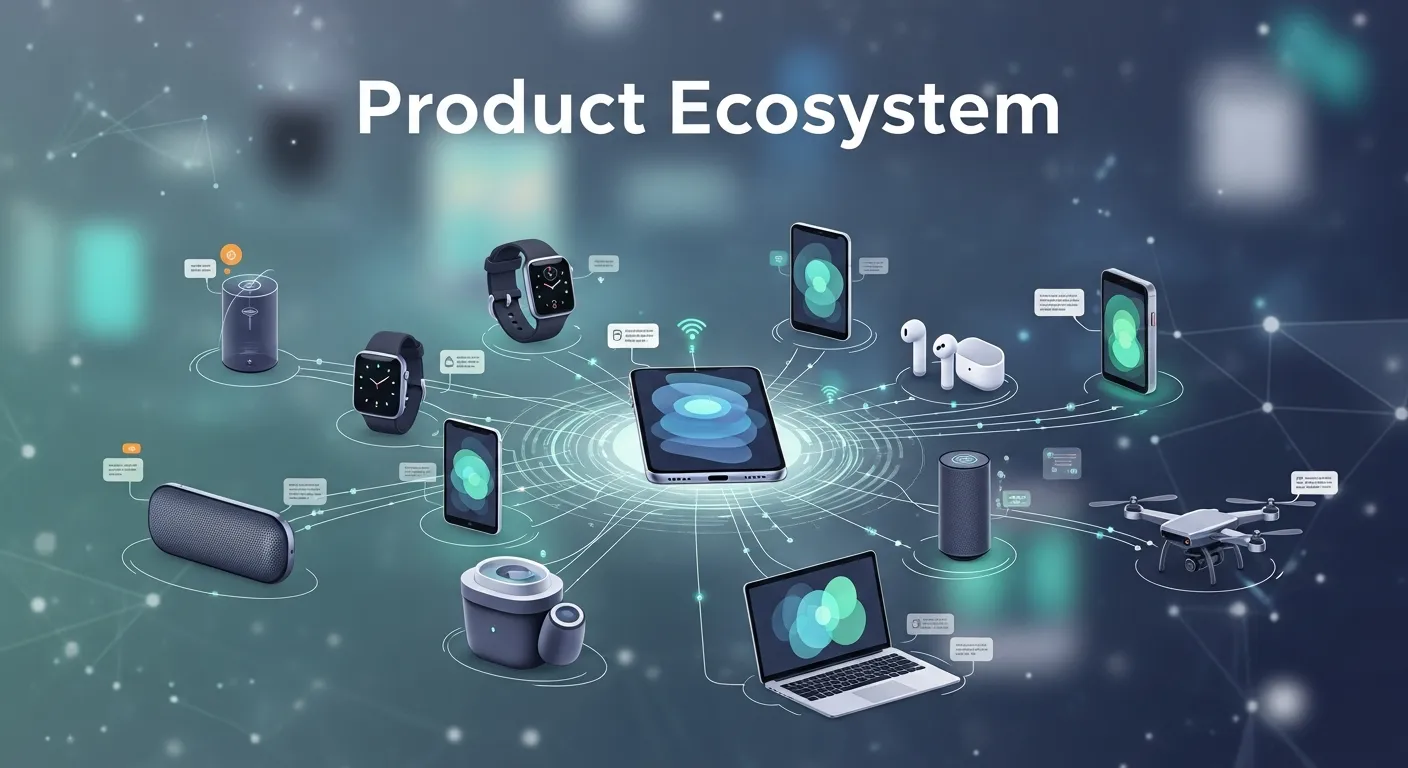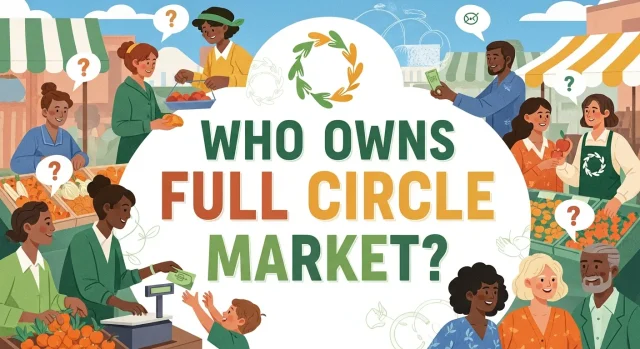When it comes to filling your cart with organic goods, knowing the story behind the label is just as important as the ingredients list. Is Full Circle Market the authentic choice for your family?
This guide demystifies Full Circle Market, revealing its true ownership structure and mission. We explore how its connection to major retail cooperatives influences its affordability, sustainability practices, and product variety. Whether you are an organic enthusiast or a budget-conscious shopper, this analysis helps you make informed decisions at the grocery store.
What is Full Circle Market?
In the crowded aisles of natural and organic foods, Full Circle Market stands out as a beacon for consumers seeking cleaner, greener options without the premium price tag typically associated with specialty health stores. It is a private label brand, meaning it is produced for and sold exclusively by specific retailers rather than being a standalone company you might find everywhere.
The brand’s philosophy is simple: good food should be accessible, and sustainability shouldn’t be a luxury. From the ground up, Full Circle Market focuses on minimizing artificial ingredients and maximizing organic integrity. Whether it is organic produce, gluten-free snacks, or eco-friendly cleaning supplies, the brand positions itself as a holistic solution for a healthier lifestyle.
The Mission Behind the Brand

At its core, Full Circle Market operates on the belief that better choices should be easy to make. Their mission emphasizes three key pillars:
- Clean Ingredients: Avoiding artificial preservatives, flavors, and colors.
- Responsible Sourcing: Partnering with growers and producers who prioritize the planet.
- Eco-Friendly Packaging: Reducing waste through thoughtful design and materials.
This alignment with sustainability marketing trends has helped the brand cultivate a loyal following among conscious consumers who are increasingly voting with their dollars.
Who Owns Full Circle Market?
This is where things get interesting for the “label sleuths” among us. Contrary to popular belief, Full Circle Market is not owned by a single massive retailer like Kroger or Walmart directly, nor is it a small, mom-and-pop operation.
Full Circle Market is a brand owned by Topco Associates, LLC.
Understanding Topco Associates
Topco Associates is not a traditional corporation; it is a massive cooperative. Based in Elk Grove Village, Illinois, Topco is the largest American retail food cooperative. It is owned by its member companies—regional grocery chains, wholesalers, and food service companies.
By pooling their purchasing power, these regional grocery chains (like Hy-Vee, Schnucks, Wegmans, and many others) can access high-quality private label brands like Full Circle Market to compete with national giants. This cooperative structure allows independent and regional grocers to offer an organic line that rivals brands like Whole Foods’ 365 or Safeway’s O Organics in terms of quality and price.
Correction Note: While some online sources or casual observers might associate the brand with specific stores where they shop (like believing it’s a “Raley’s brand” or a “Big Y brand”), the actual intellectual property and brand direction come from Topco.
Why Is This Ownership Structure Significant?
The cooperative ownership by Topco gives Full Circle Market a unique position in the industry:
- Scale and Affordability: Because Topco aggregates demand from dozens of grocery chains across the country, they can negotiate better prices with suppliers. This efficiency is why Full Circle Market products are often cheaper than national organic brands.
- Wide Availability: You can find these products in thousands of stores across the U.S., but under different store banners.
- Standardized Quality: Topco enforces strict quality standards across all its member stores, ensuring that a bag of organic quinoa bought in New York tastes the same as one bought in California.
The Product Ecosystem: What Does Full Circle Market Offer?

The Full Circle Market portfolio is surprisingly vast, designed to fit seamlessly into every corner of a conscious consumer’s home. It’s not just about granola; it’s about a lifestyle overhaul.
1. Pantry Staples
This is the backbone of the brand. They offer USDA Certified Organic options for everyday cooking needs.
- Grains & Pastas: From quinoa and brown rice to organic wheat pasta.
- Canned Goods: Organic beans, tomatoes, and soups free from BPA-lined cans.
- Baking Needs: Organic flour, sugar, and natural sweeteners.
2. Snacks and Beverages
For the busy individual, Full Circle Market provides on-the-go options that don’t compromise on health.
- Snacks: Gluten-free crackers, organic tortilla chips, and trail mixes.
- Beverages: Fair-trade certified coffee, organic teas, and 100% juices without added sugars.
3. Fresh and Frozen
The brand extends into the perimeter of the store as well.
- Produce: Fresh organic fruits and vegetables.
- Frozen: Convenient organic frozen meals, vegetables, and fruits for smoothies.
- Dairy & Meat: Responsibly raised meats and organic dairy products.
4. Home and Cleaning
Recognizing that a non-toxic lifestyle extends beyond the plate, the brand includes:
- Cleaning Supplies: Biodegradable dish soaps and laundry detergents.
- Paper Products: Toilet paper and paper towels made from recycled materials.
How Topco’s Ownership Influences the Brand
Understanding that Topco owns Full Circle Market helps explain several key attributes of the brand that consumers value (or question).
Advantages of Cooperative Leadership
Scalability Without Sacrificing Affordability
Topco’s massive buying power allows Full Circle Market to democratize organic food. By cutting out the marketing premiums associated with big-name brands, they pass savings to the consumer. This makes organic food more inclusive and accessible to a broader demographic, directly addressing issues of brand accessibility.
Sustainability Efforts
Topco has the resources to invest in supply chain improvements. Through Full Circle Market, they drive initiatives like sustainable fishing practices and reducing plastic usage. Their “Project Gigaton” style efforts (though specific to Topco’s framework) aim to lower the carbon footprint across the supply chain.
Strict Quality Standards
The brand operates under rigorous quality control. Topco ensures that Full Circle Market products meet or exceed USDA Organic certifications. They also often seek Non-GMO Project Verification and Fair Trade certification, providing social proof to wary consumers.
Challenges of Cooperative Ownership
The “Authenticity” Question
Some critics argue that brands owned by large cooperatives or corporations lack the “soul” of independent producers. Independent organic brands often emphasize direct partnerships with small farms. A cooperative the size of Topco likely relies on larger, industrial-scale organic suppliers to meet the demand of thousands of supermarkets. This can feel less “authentic” to shoppers who prioritize supporting small-scale agriculture.
Transparency Complexity
Because Topco sources from various suppliers to feed into the Full Circle Market label, tracing the exact origin of a specific product can sometimes be harder than with a single-source farm brand. The “source” is often listed as distributed by Topco, requiring a deeper dive to find the actual producer.
Consumer Perception: Is It Trusted?

Consumer perception of Full Circle Market is generally positive, particularly among those who prioritize affordability and convenience.
The Trust Factor
Trust in the organic space is hard-won. Full Circle Market builds trust through clear labeling. Their “Free From” list—a guarantee that products are free from over 100 questionable ingredients—is a strong selling point. For price-conscious consumers, the combination of certified organic ingredients and lower shelf prices outweighs the romanticized idea of buying directly from a farmer.
The Competition
When compared to other private label brands:
- Vs. Simple Truth (Kroger): Simple Truth is Kroger’s proprietary brand. While similar in scope, Simple Truth is exclusive to Kroger-owned stores. Full Circle Market is found in independent chains.
- Vs. O Organics (Albertsons/Safeway): Similar to Simple Truth, this is a retailer-exclusive brand.
- Vs. Whole Foods 365: Often seen as the gold standard for private label organics, 365 has high brand equity but is often perceived as more expensive (though prices have become more competitive).
Full Circle Market holds its own by being the champion of the “neighborhood grocer.” It allows your local independent supermarket to offer a high-quality organic line that keeps you from having to drive to a specialty store.
Comparison of Major Private Label Organic Brands
|
Feature |
Full Circle Market |
Simple Truth |
O Organics |
365 by Whole Foods |
|---|---|---|---|---|
|
Owner |
Topco Associates (Co-op) |
Kroger |
Albertsons Companies |
Amazon / Whole Foods |
|
Availability |
Various Regional Chains (Hy-Vee, etc.) |
Kroger Family Stores |
Safeway, Vons, Jewel-Osco |
Whole Foods Market |
|
Primary Focus |
Organic & Natural |
Organic & “Free From” |
Organic |
Organic & Clean Label |
|
Price Point |
Budget-Friendly |
Budget-Friendly |
Mid-Range |
Mid-to-High |
|
Non-Food Items |
Yes (Cleaning, Paper) |
Yes |
Yes |
Yes |
What Does This Mean for the Conscious Consumer?
If you are an organic food shopper or a label reader, understanding that Topco owns Full Circle Market might influence your purchasing decisions. It represents a convergence of mainstream availability with the attributes important to organic consumers—sustainability and clean ingredients.
For those in need of an affordable, dependable organic option, Full Circle Market is a robust choice. It proves that you don’t need a massive marketing budget to deliver quality product. However, if your primary goal is to support hyper-local, small-batch agriculture, you might still want to supplement your pantry with items from your local farmers’ market.
Actionable Tips for Shoppers
- Read the Back Label: Look for the specific certifications (USDA Organic, Fair Trade) rather than just trusting the brand name.
- Compare Prices: Check the unit price of Full Circle Market items against national brands. The savings are often substantial.
- Check for “Free From”: If you have sensitivities, use their “Free From” lists to quickly vet products.
Conclusion
Full Circle Market is a vital player in the modern grocery landscape, bridging the gap between premium organic aspirations and the reality of a grocery budget. While owned by the massive cooperative Topco Associates rather than a single boutique farm, this structure is exactly what allows it to deliver consistent, certified organic products to neighborhood stores across America. It empowers consumers to make better choices without breaking the bank, proving that accessibility and quality can indeed coexist in the organic aisle.
Frequently Asked Questions (FAQs)
1. Is Full Circle Market fully organic?
Not every single product is organic, but a vast majority are. The brand encompasses both “natural” and “organic” products. Look for the green and white USDA Organic seal on the packaging to be sure. Products without the seal are usually “natural” and free from artificial ingredients but may not be certified organic.
2. Where can I buy Full Circle Market products?
You can find them in independent and regional grocery stores that are members of Topco Associates. Common chains include Hy-Vee, Schnucks, Big Y, Raley’s, Weis Markets, and many others.
3. Is Full Circle Market gluten-free?
Many Full Circle Market products are gluten-free, but not all. They offer a specific line of gluten-free products, including crackers, pretzels, and baking mixes. Always check the packaging for the “Gluten-Free” certification.
4. Does Full Circle Market use GMOs?
The organic products under the Full Circle Market label are non-GMO by definition (USDA Organic standards prohibit GMOs). For their natural (non-organic) line, they strive to avoid GMOs, and many products carry the Non-GMO Project Verified seal.
5. Is the packaging eco-friendly?
The brand has made significant strides in sustainability marketing by using recycled materials for paper products and reducing plastic in their packaging. However, like most grocery brands, they still utilize plastic for many food items to ensure freshness and safety.
6. How does the price compare to Whole Foods?
Generally, Full Circle Market is priced lower than Whole Foods’ equivalent products, largely because it is sold in standard grocery stores rather than premium health food retailers. The cooperative buying power of Topco helps keep these costs down.
7. Are Full Circle Market cleaning products safe?
Yes, their cleaning products are formulated to be non-toxic and biodegradable. They avoid harsh chemicals like phosphates and bleach, making them safer for households with children and pets.
8. Who manufactures Full Circle Market products?
Topco Associates does not manufacture the products themselves; they contract with various third-party suppliers and manufacturers who meet their strict quality and ethical standards. This is standard practice for private label brands.
9. Is Full Circle Market fair trade?
Specific commodities within their line, such as coffee, tea, and chocolate, are often Fair Trade Certified. This ensures that the farmers in developing countries who grew the ingredients were paid a fair wage. Look for the Fair Trade logo on specific items.
10. Why do I see Full Circle Market at different store chains?
This is the beauty of the Topco cooperative model. Different grocery chains (like Hy-Vee in the Midwest and Raley’s in the West) are members of the same coop. They both have the right to sell Full Circle Market products, giving the brand a national footprint without being owned by a national chain.




